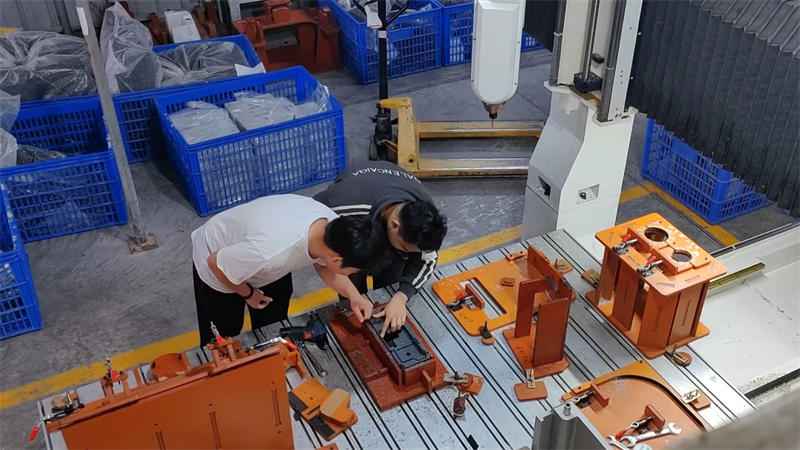What's the Role of Engineering Team in Rotomolding Production at Light Venus
 Mar 24,2025
Mar 24,2025

What's the Role of Engineering Team in Rotomolding Production at Light Venus?
The engineering team at Light Venus plays a pivotal role in the rotomolding production process. From design and development to mold fabrication, process optimization, quality control, and continuous improvement, their expertise and dedication ensure the production of high-quality rotomolded products that meet customer expectations.
1. Mold Design and Development
The quality and functionality of the final product heavily depend on the mold design. Engineering teams at Light Venus work closely with designers and clients to develop molds that meet specific product requirements. They consider factors such as product geometry, wall thickness, parting lines, and cooling requirements. Advanced software tools like CAD (Computer-Aided Design) and CAM (Computer-Aided Manufacturing) are utilized to create precise and optimized mold designs. The engineering team also ensures that the mold can withstand the high temperatures and pressures involved in the rotomolding process, preventing deformation or damage during production.
2. Material Selection and Formulation
Engineering support is responsible for selecting the appropriate plastic materials for the rotomolding process. They consider factors such as the desired properties of the final product (e.g., strength, flexibility, durability), environmental conditions, and cost constraints. Common materials used in rotomolding include polyethylene (PE), polypropylene (PP), and polyvinyl chloride (PVC). The engineering team may also work on material formulation, blending different polymers or additives to achieve specific characteristics such as UV resistance, impact resistance, or flame retardancy.
3. Process Optimization
The rotomolding process involves several stages: charging the mold with plastic powder or pellets, heating and rotating the mold to distribute the molten plastic evenly, cooling the mold to solidify the plastic, and demolding the finished product. Engineering support teams optimize each stage of the process to ensure consistent quality, reduce production time, and minimize waste. They monitor and adjust parameters such as heating temperature, rotation speed, cooling time, and material charge weight. Advanced monitoring systems and data analysis techniques are employed to identify bottlenecks, troubleshoot issues, and continuously improve the production process.
4. Quality Control and Assurance
Maintaining high-quality standards is essential in rotomolding production. Engineering team plays a key role in establishing and implementing quality control procedures. They work with quality assurance teams to develop inspection plans, testing protocols, and acceptance criteria. Various testing methods such as visual inspection, dimensional measurement, mechanical testing, and non-destructive testing (e.g., ultrasonic testing) are used to ensure that the final products meet the required specifications. The engineering team also analyzes quality data to identify trends, root causes of defects, and areas for improvement, enabling corrective actions to be taken promptly.
5. Equipment Maintenance and Troubleshooting
Rotomolding machinery requires regular maintenance to operate efficiently and reliably. Engineering support teams are responsible for developing maintenance schedules, performing routine inspections, and conducting repairs when needed. They ensure that all components of the rotomolding machine, including the oven, mold rotation system, cooling system, and control systems, are in good working condition. Additionally, engineering support personnel troubleshoot and resolve any technical issues that arise during production. Their expertise in mechanical, electrical, and automation systems helps minimize downtime and keep the production line running smoothly.

Additionally, our engineers are dedicated to continuous innovation, guaranteeing that our rotomolding process not only runs with efficiency but also yields high-quality products that seamlessly align with the ever-changing market requirements.
 Tel: 0086-13632687993
Tel: 0086-13632687993  Email: roto@lightvenus.com
Email: roto@lightvenus.com

 Home
Home How to Ensure Dimensional Accuracy in Custom Rotomolded Products at Light Venus
How to Ensure Dimensional Accuracy in Custom Rotomolded Products at Light Venus  You May Also Like
You May Also Like



 Tel
Tel
 Email
Email
 Address
Address








